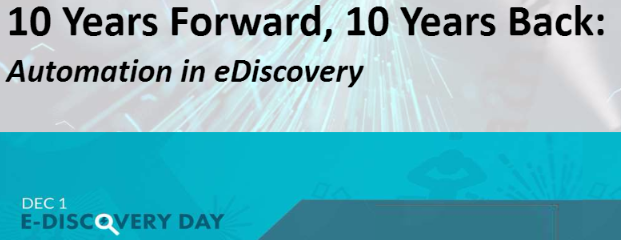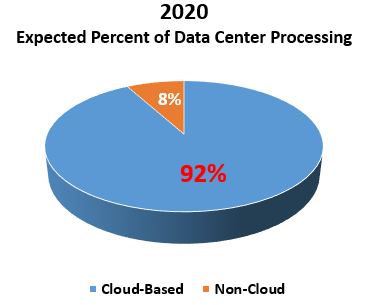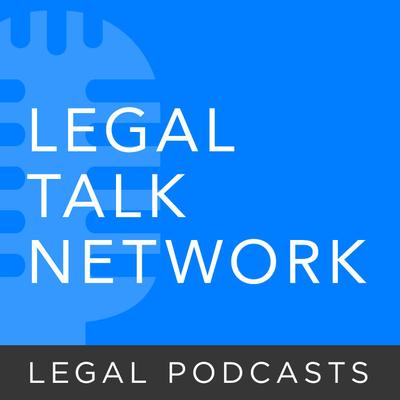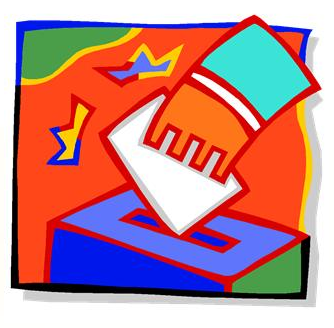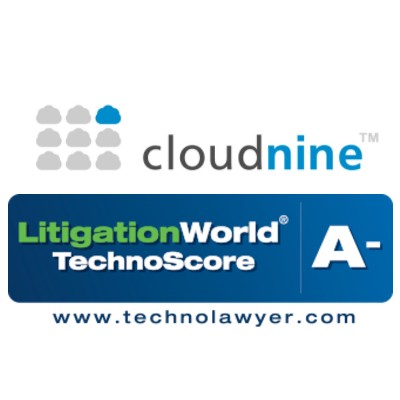Evolution of eDiscovery Automation – Looking Back and Looking Forward: eDiscovery Trends
How has eDiscovery automation technology evolved over the years? Where is it headed? What is the current state of acceptance for Technology Assisted Review (TAR) within courts and within the bar? How do the different TAR approaches work? Has the promise of TAR been fulfilled?
Those are just a few of the questions presented and discussed last Thursday in our E-Discovery Day webcast 10 Years Forward and Back – Automation in eDiscovery which was presented by ACEDS and sponsored by CloudNine. If you missed the webcast, you’re in luck – the webcast was recorded!
Moderated by Mary Mack, Executive Director of ACEDS, the webcast highlighted the progress of eDiscovery automation technology over time and took a look at the present state of the technology and where it could be headed. Speakers included:
- George Socha, Co-Founder of EDRM and Managing Director at BDO, who turned on the “wayback” machine to look at the evolution of eDiscovery technology for well more than ten years back (more like 30 when the term “eDiscovery” didn’t even exist yet) and took a look forward toward what to expect for the future;
- David Horrigan, E-Discovery Counsel and Legal Content Director at kCura, who discussed the evolution and current state of acceptance of TAR by courts and within the bar;
- Bill Dimm, Founder and CEO of Hot Neuron, who discussed what we’ve learned about improving TAR technologies and how to effectively measure results, as well as how each of the most common TAR approaches work;
- Bill Speros, Principal of Speros & Associates, who discussed the current state of the practice of TAR and whether TAR (and machine learning technology in general) is currently living up to its promise or it has reached the peak of inflated expectations.
I spoke as well about factors that are driving practitioners and providers alike toward discovery automation technology, the evolution of that technology to where we are today and whether any of the current automation technologies has the potential of becoming a disruptive innovation that revolutionizes how discovery is conducted. The panel also addressed several questions from the audience over the course of the 90 minute session.
The webcast was well attended with several of the attendees rating the webcast as “Excellent” and a number of them commenting that the webinar was very informative and provided excellent information about the use of TAR and the history of eDiscovery technology.
Now is your chance to find out if you agree. Below is the video recording of the webinar.
You can also check it out here and also download a PDF copy of the slides (though I should note that many of the slides have animations, so the best way to get the full effect is to watch the video). Feel free to drop me a line and let me know what you think.
So, what do you think? Did you attend an E-Discovery Day event? Please share any comments you might have or if you’d like to know more about a particular topic.
Disclaimer: The views represented herein are exclusively the views of the author, and do not necessarily represent the views held by CloudNine. eDiscovery Daily is made available by CloudNine solely for educational purposes to provide general information about general eDiscovery principles and not to provide specific legal advice applicable to any particular circumstance. eDiscovery Daily should not be used as a substitute for competent legal advice from a lawyer you have retained and who has agreed to represent you.

